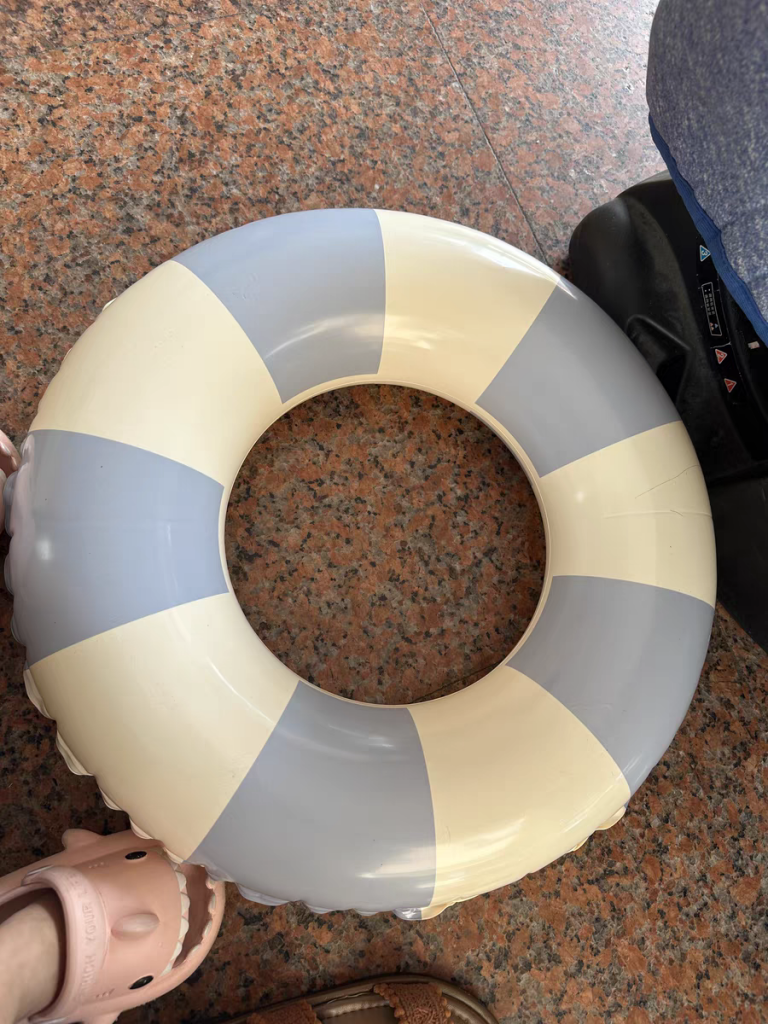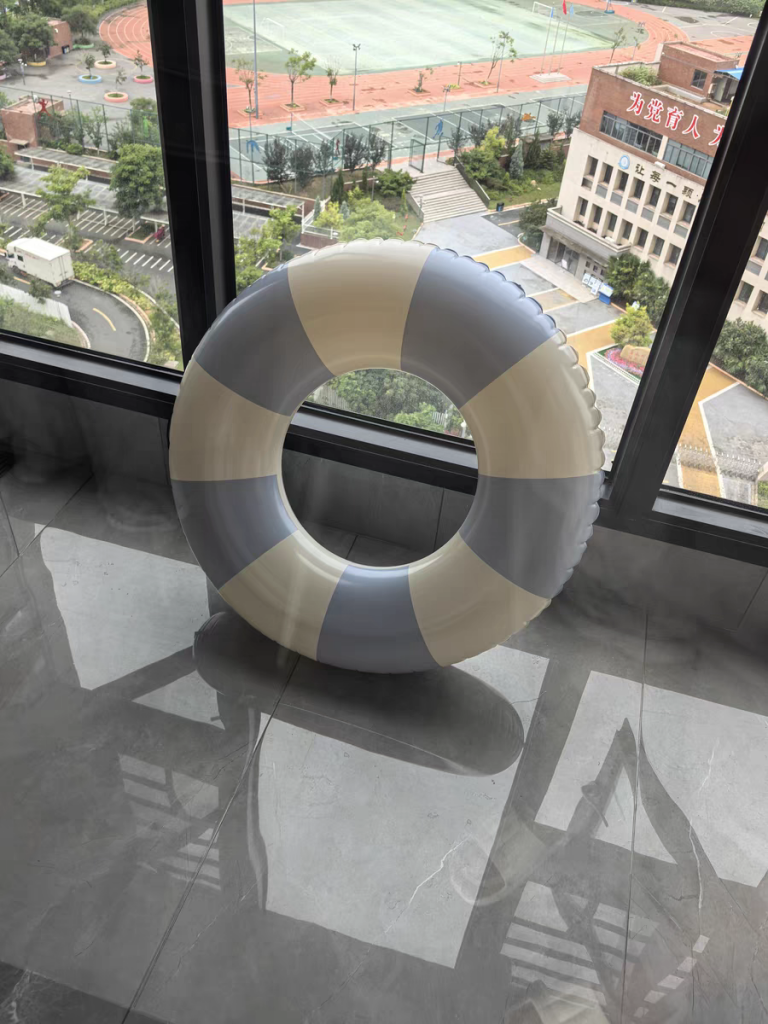


In the world of water play, a swimming ring is more than just a fun accessory—it’s a critical safety tool, especially for children. Parents trust these inflatables to keep their kids afloat, while retailers and brands rely on them to meet strict safety standards and avoid costly liabilities. At the heart of this trust lies safety-certified swimming ring manufacturers: factories that prioritize rigorous testing, compliance with global regulations, and unwavering commitment to quality. Let’s explore why these certifications matter, how top manufacturers achieve them, and how they protect both businesses and end-users.
Why Safety Certifications Are Non-Negotiable
Water play involves inherent risks—slips, punctures, or improper inflation can lead to accidents. For children, who are more vulnerable, a poorly made ring can quickly turn a playful moment into a dangerous situation. This is why safety certifications are not just “extras” but *requirements* for reputable manufacturers.
Internationally recognized certifications like EN71 (EU), ASTM F963 (US), and CE (Conformité Européenne) validate that a product meets strict criteria for:
– Material safety: Non-toxic, free from harmful chemicals (e.g., phthalates) that could leach into water.
– Structural integrity: Resistance to tears, punctures, and inflation-related failures.
– Buoyancy performance: Consistent floatation under normal use and stress.
For businesses, these certifications are a passport to global markets. Retailers refuse to stock uncertified products, and parents avoid them due to safety concerns. For manufacturers, earning these certifications is a mark of excellence—a testament to their dedication to quality and consumer protection.
How Safety-Certified Manufacturers Deliver Excellence
Achieving safety certifications is no small feat. It requires a holistic approach to production, from material selection to final testing. Here’s how top safety-certified swimming ring manufacturers ensure their products pass the toughest checks:
1. Premium Materials: Safety Starts at the Source
Certified manufacturers prioritize materials that are inherently safe and durable. Instead of cheap, unregulated plastics, they use:
– Food-grade PVC (polyvinyl chloride): Non-toxic, UV-resistant, and free from phthalates—critical for products in contact with skin or water.
– TPU (thermoplastic polyurethane): A premium alternative to PVC, TPU is more flexible, tear-resistant, and resistant to chlorine and saltwater.
Factories source these materials from trusted suppliers with their own safety certifications, ensuring traceability and consistency. For example, a manufacturer might partner with a PVC resin provider that adheres to REACH (EU chemical safety regulations), guaranteeing no harmful additives.
2. Rigorous Testing: Simulating Real-World Risks
Before a ring reaches the market, it undergoes a battery of tests designed to mimic real-world use—and beyond. Certified manufacturers invest in advanced testing labs and follow protocols outlined by certification bodies:
– Material toxicity tests: Samples are analyzed to ensure they contain no prohibited chemicals (e.g., lead, cadmium).
– Inflation and pressure tests: Rings are inflated to 1.5–2x their recommended capacity and held for 24+ hours to check for leaks or deformation.
– Puncture resistance tests: Samples are scratched with sharp objects (keys, nails) to measure tear strength. A certified ring must withstand forces far beyond typical use.
– UV and weathering tests: Rings are exposed to accelerated UV light, saltwater, and temperature extremes (e.g., -20°C to 50°C) to simulate years of outdoor use. This ensures they won’t fade, crack, or lose buoyancy.
3. Compliance with Global Standards: Breaking Market Barriers
Different regions have unique safety requirements, and certified manufacturers adapt to meet them. For example:
– EU markets: Compliance with EN71-1 (mechanical safety) and EN71-3 (chemical safety) is mandatory. Factories conduct electromagnetic compatibility (EMC) tests if the ring includes electronic features (e.g., whistles).
– US markets: ASTM F963 mandates rigorous testing for small parts (to prevent choking hazards) and flammability resistance.
– Australian markets: AS/NZS 8124 ensures compliance with toy safety standards, including impact resistance.
By aligning with these standards, manufacturers open doors to global retailers and e-commerce platforms, which often require certification before listing products.
The Benefits of Partnering with Safety-Certified Manufacturers
For businesses and consumers alike, choosing a safety-certified swimming ring manufacturer delivers unmatched value:
For Businesses: Trust, Sales, and Growth
– Market access: Certifications like CE or ASTM F963 are often mandatory for international sales. A certified manufacturer handles compliance, saving you time and legal risks.
– Reduced returns: Fewer defective products mean happier customers and lower return rates—key for maintaining high ratings and repeat business.
– Brand reputation: Selling certified products positions your brand as reliable and safety-conscious, attracting health-focused parents and eco-aware consumers.
For Consumers: Peace of Mind, Safer Play
– Parental confidence: A certified ring reassures parents that their child’s safety is prioritized. For example, a parent choosing a CE-certified ring knows it’s been tested for chemical safety and structural strength.
– Longevity: Certified rings are built to last, reducing the need for frequent replacements and saving families money.
– Legal protection: In the rare event of an accident, a certified product is backed by documented testing, simplifying liability claims and insurance processes.
How to Verify a Manufacturer’s Certifications
Not all “certified” claims are created equal. To ensure you’re partnering with a legitimate safety-certified manufacturer, look for:
– Transparent documentation: A reputable factory will provide copies of certificates (e.g., EN71, ASTM F963) issued by accredited third-party labs (e.g., SGS, TÜV, Intertek).
– On-site audits: Factories open to factory audits demonstrate a commitment to compliance. Ask for photos or videos of testing facilities.
– Sample testing: Request a free sample and have it independently tested by a lab of your choice. This confirms the manufacturer’s claims are accurate.
Conclusion: Safety Certification—The Foundation of Trust
In an industry where safety is paramount, safety-certified swimming ring manufacturers are more than producers—they’re guardians of trust. By investing in premium materials, rigorous testing, and global compliance, these factories protect children, empower businesses, and uphold the integrity of the aquatic leisure market.
Whether you’re a retailer seeking reliable inventory, a brand building a loyal customer base, or a parent choosing a float for your child, partnering with a safety-certified manufacturer ensures that every splash is met with confidence. After all, when it comes to water play, safety isn’t just a standard—it’s a promise.
Article link:https://www.vlefooena.com/manufacturer/4486/

No reply content